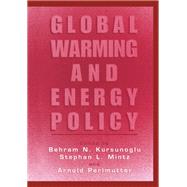Global Warming and Energy Policy
, by Kursunogammalu, Behram N.; Mintz, Stephan L.; Perlmutter, Arnold- ISBN: 9781461354970 | 1461354978
- Cover: Paperback
- Copyright: 9/24/2012
This volume, proceedings of a symposium on global warming and energy policy, explores two major environmental concerns that arise from fuel use: the prospect that the globe will become warmer as a result of emissions of carbon dioxide, and the effect upon health of the fine particles emitted as combustion products. In regards to the former, in the second half of the 20th century there were major increases in anthropogenic CO2 emissions, and it is generally agreed that these were responsible for an increase in CO2 concentrations. However, the relationship between global temperature and CO2 is unclear. It is known, though, that water vapor is a more important greenhouse gas than CO2 and that the concentrations of water vapor vary widely in time and space. It is generally believed that as temperature increases so does the water vapor, leading to further temperature increases. Some scientists agree with this model, and some disagree with it. This volume (a) outlines the situation of predicting temperature rise, (b) outlines the present situation on the effect of temperature on economic activity, (c) discusses what steps can be taken to clarify this situation, and (d) discusses what society might do while waiting for these steps to produce results. In regards to the effect of combustion products on health, the situation in this case is less global, although many parts of the world are affected. Depending on epidemiological study alone, it is hard to be sure about a risk caused by a substance unless it at least doubles the frequency of an outcome which occurs naturally. The scientific uncertainties, therefore, remain almost as large as those for global warming.






